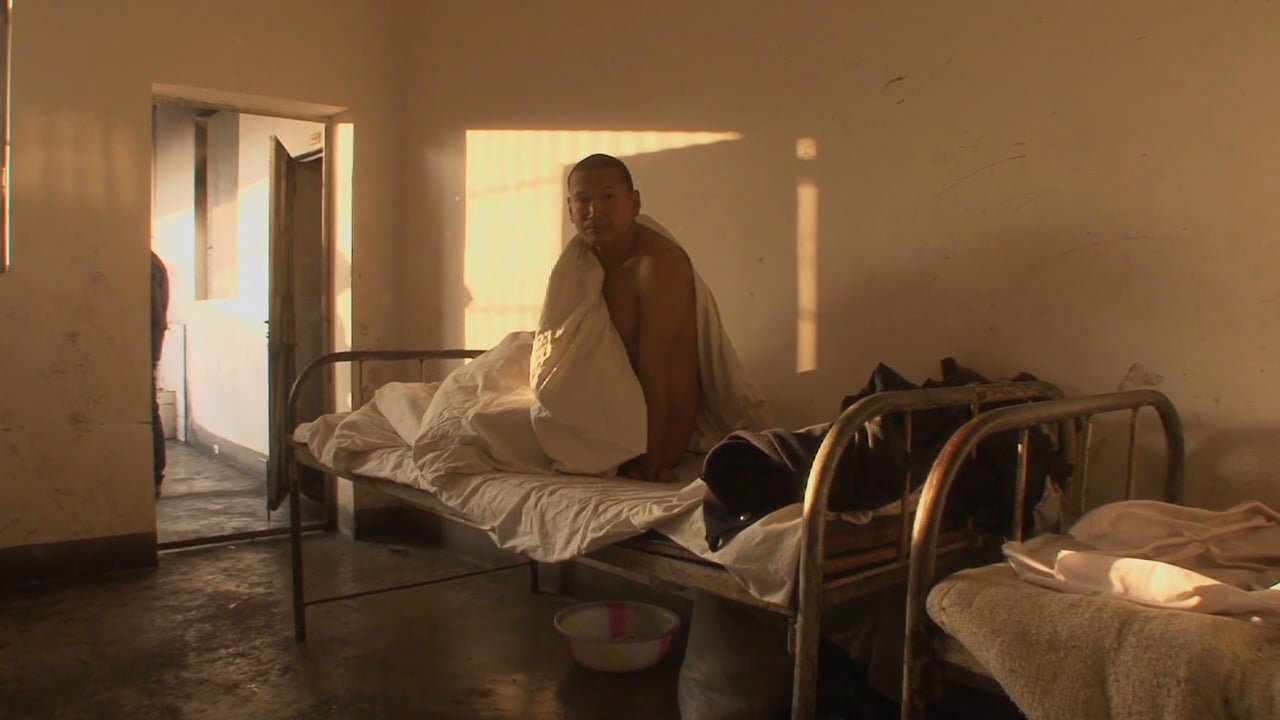‘Til Madness Do Us Part
Director/Wang Bing
Watched on MUBI
Rating 4.5/5
Chinese filmmaker Wang Bing’s singular gaze in ‘Til Madness Do Us Part is fueled not only by his humanism by also by a style that could be called relentless patience. His camera locks on to one man and refuses to let go for 15, 20, 25 minutes; and then, as if satisfied or exhausted, finds another man to follow for yet another extended streak, then another, and another. The fact that all of these men are mentally ill and confined to a single claustrophobic floor of a grim institution in Yunnan, China only intensifies Wang’s commitment to his punishing approach.
His presence behind the camera, while never revealed except for the very occasional stare into the lens from his subjects, becomes just as fascinating as the monotonous rantings and repetitive behaviors of the inmates. The effect is both radical and hard to pin down: you are watching his act of watching, waiting to feel either repelled by the onscreen actions, or guilty for complicity in the documentary cliché of exploitation. The fact that repugnance, complicity or guilt never actually arrives, and that Wang does not suggest for a single frame that he is abusing his access, compels you to keep watching, even if it takes you a few days to get through the film (at almost four hours long, I needed two viewing sessions; his latest, Dead Souls, clocks in at 495 minutes).
Wang was apparently denied access to film at a mental institution in Bejing, so he found this more remote location, and appears to have been left completely alone. Without lights, tripod, music, voice-over, or interviews, Wang does not actually prowl the facility; instead he attaches himself as if by leash to a sampling of its patients as they navigate the four main corridors that form a square around a central outdoor, unreachable, courtyard. They wander along the concrete floors, hop in and out of bed, talk to themselves, swat at imaginary insects, take off all their clothes, and urinate wherever and whenever the urge strikes. One inmate appears to literally be climbing the walls. All they seem to have for distraction is a blaring TV in the common room, and the exterior square that they can only look at, since a chain link fence locks them in. Once in a while, nurses and doctors appear to hand out meds.
With each patient, Wang spends several minutes allowing the particulars of their disorder to become clear–anger, persecution, paranoia, grandiosity–and then he quietly inserts text on the screen revealing their name and how long they’ve been incarcerated. These moments are startling. Most of the men have been there for years upon years, endlessly padding along the same walkways like wraiths, gripped by interior dramas, and peeing on the floors. One gets the disquieting feeling that what we’re actually visiting here is not simply a grimy state hospital, but one of the circles of Dante’s Hell.
A few of the inmates receive family visitors, and we learn that some have been sent here simply because a wife or grown child was simply too exhausted or too poor to care for them on the outside. Others have committed crimes. One of the men is in for murder. Later in the film, Wang follows one man outside the walls as he returns home, mutely spending time with his aging parents, seemingly lost as to how or why he should reintegrate into the free world. After a few days, he starts walking away. The director follows him for several long minutes as the man eventually winds up on a highway, walking in sandals and a light jacket on a journey to nowhere. At this point, even Wang must give up, and return to the prison.
The effect of ‘Till Madness Do Us Part should by all rights be depressing, and it is when considered through the lens of China’s utter disregard for the quality of life of their mentally ill. A too large country with a shattered infrastructure can only offer to pay for a bed, a roof, and a meal. But as a film, Wang’s portrait is mesmerizing. It is only by walking the rooms and floors with ghosts can we reckon with the torment human beings are capable of enduring.

